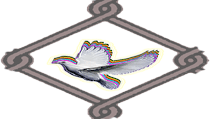Narcissistic Injury and the War on Terror
By George Wolfe
In November of 2002, I received a phone call from a Chicago resident concerned about what I taught in my peace studies class on nonviolence. During the course of the conversation, the caller, when referring to the 9/11 terrorist plot, exclaimed, “We were attacked!” Such a reaction is an example of what Sigmund Freud called narcissistic injury.
The caller was not in New York City or Washington D.C. on 9/11. He was not personally attacked physically, but nevertheless saw himself as threatened because he was identifying with the Americans who were in the World Trade Center or the Pentagon.
Narcissistic injury occurs when you take as a personal attack an injury to a member of the group to which you belong or self-identify. A person perceives that one’s expanded or inflated sense of self is being attacked, either verbally or physically.
If someone attacks a member of your family and you react as if it were an attack on either your own life or your personal self-identity, you are experiencing narcissistic injury. And if, in your anger, you decide in return to attack a member of your aggressor’s family (other than the person who was actually responsible for the original attack), you are engaging in a calculated form of “narcissistic rage” or what may be called narcissistic revenge. The group to which you belong however, can be much larger than your family. It can be defined by the race to which you belong, your nationality, or your religious sect.
Immediately after 9/11, there were instances where U.S. citizens sought revenge against Muslims living in the United States solely because the 9/11 hijackers were Muslim. Not only were these Americans experiencing narcissistic injury, they were engaging in narcissistic revenge. In one outrageous instance, a Sikh named Balbir Singh Sodhi, who was wearing his turban but was mistaken for a Muslim, was gunned down on September 15, 2001, in Mesa, Arizona.
Once a conflict is elevated to this level of psychological intensity, the number of people that join the conflict can increase exponentially because revenge is being taken against individuals who were not initially part of the dispute. One can see this at work in Europe as revenge is taken against Jews in France and other countries because of last year’s Israeli invasion of Gaza which killed over 2000 Palestinians.
In seeking such narcissistic revenge, the conflicting parties broaden the scope of the conflict, drawing into the fray relatives, friends, and associates who then experience feelings of narcissistic injury that motivate future attacks. We thus have a psychological model that explains why insurgencies, such as those encountered in the wars in Iraq and Afghanistan, battle defiantly to sustain themselves and at times grow stronger. What is at work here is a kind of group neurosis that is fed, not defeated, by violence.
Because of these psychological underpinnings, we have little reason to be optimistic that groups like ISIS can be defeated militarily. The more terrorists we kill, the more we create, especially when our military incursions along with our air and drone strikes kill innocent civilians, particularly women and children.
The long-term solution in the case of ISIS must include freezing assets, disrupting the arms trade, bolstering humanitarian efforts to help displaced civilian families, and building coalitions with moderate Arab leaders who can work to marginalize militant extremists and thwart their ability to radicalize and recruit new members.
George Wolfe is Professor Emeritus at Ball State University and former Director and Coordinator of Outreach Programs for the Ball State University Center for Peace and Conflict Studies. He also chairs the Muncie Interfaith Fellowship, is a trained mediator, and is the author of The Spiritual Power of Nonviolence: Interfaith Understanding for a Future Without War.



